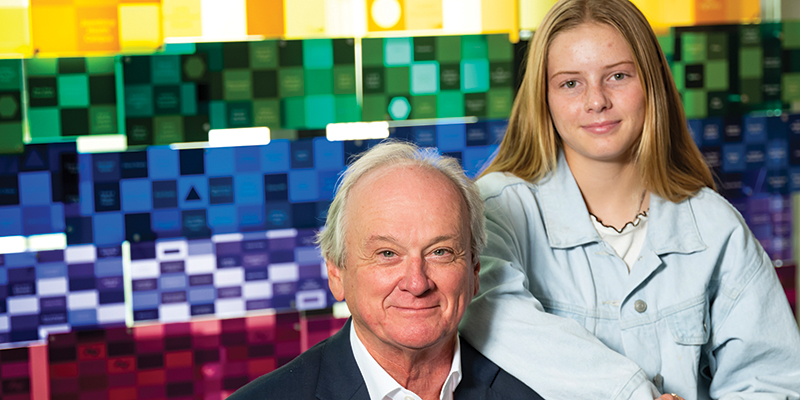Search
Research
Investigating mortality rates and the incidence and risk factors of diabetes complications and co-morbidities during early adult life in a population based childhood onset diabetes cohortUsing the WA Data Linkage System to provide information of the incidence and relative risk of T1D co-morbidities and mortality during early adulthood.

News & Events
Smooth sailing for Drina thanks to burden-breaking technologyRecent diabetes technology is helping 12-year-old Drina keep on top of her condition and be independent, while significantly easing the disease burden on her family.

News & Events
'Artificial pancreas' helps ease diabetes burdenThe Centre is currently involved in an international effort to develop revolutionary closed- loop 'artificial pancreas' technology. It is also leading a multi-centre Australian trial of these portable devices at home in young people with diabetes.

News & Events
What life is like living with type 1 diabetesEvery decision a child with type 1 diabetes makes can impact on their blood glucose levels.
News & Events
Environmental factors could trigger rise in type 1 diabetesNew research from Perth's Telethon Institute for Child Health Research has revealed an unexpected pattern in the rate and incidence of type 1 diabetes
Research
Risk factors for decline in IQ in youth with type 1 diabetes over the 12 years from diagnosis/illness onsetThis study examined illness-related change in intelligence quotient (IQ) in a cohort of youth with type 1 diabetes studied prospectively from disease onset...
Research
Early loss of the glucagon response to hypoglycemia in adolescents with type 1 diabetesThe objective was to assess the glucagon response to hypoglycemia and identify influencing factors in patients with type 1 diabetes compared with nondiabetic...
Research
Long-term outcome of insulin pump therapy in children with type 1 diabetes assessed in a large population-based case-control studyWe determined the impact of insulin pump therapy on long-term glycaemic control, BMI, rate of severe hypoglycaemia and diabetic ketoacidosis (DKA) in children.
Research
The effect of midday moderate-intensity exercise on postexercise hypoglycemia risk in individuals with type 1 diabetesRecently we reported a biphasic increase in glucose requirements to maintain euglycemia after late-afternoon exercise, suggesting a unique pattern of delayed...
Research
A population-based study of risk factors for severe hypoglycaemia in a contemporary cohort of childhood-onset type 1 diabetesThe aim of this study was to examine the incidence rates and risk factors associated with severe hypoglycaemia in a contemporary cohort of children and...
